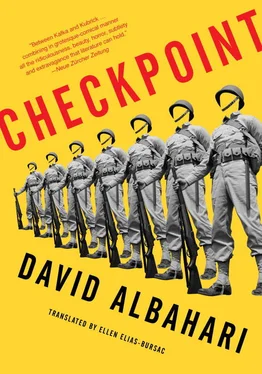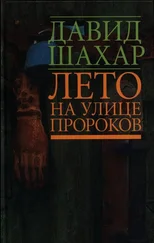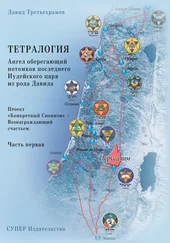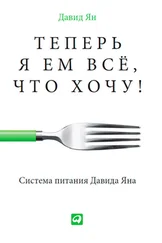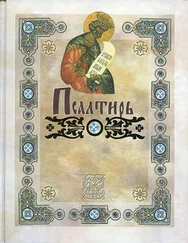” What he’d like, said the commander, was that there be no errors in the new roster he started yesterday, and he’d like that roster to stay brief, he sincerely hoped it would though he knew that no one, except just maybe He who was on high—here he stopped and raised his eyes to the heavens, and all of us looked upward after him—knows in advance just how long that roster will be. All of us, of course, understood what roster he had in mind, just as we all knew it held, so far, four names: the sentry killed in the latrine, the two men shot by arrows while patrolling the forest, and, finally, the soldier who set out on his own after Mladen. A hush. We were prepared to honor the victims of a war that, like every war, is pointless, but each of us was also hoping the next name wouldn’t be his own. We said nothing and darted dirty looks at one another as if we were sworn enemies, but what else can you think of someone who hopes to see you dead? “I don’t want to die,” blurted one of us and we all burst out laughing, not that we were laughing at death, but with relief at the thought that all of us felt the same way. No one wanted to die. Even for such a noble cause as defending the homeland. What could possibly be noble about a violent death? And the stupidest part of all was that afterwards this would become fodder for people who’d had no experience at all with it, with death. How can a living person understand someone who’s dead, understand what a gunshot victim thinks as the bullet rips through his flesh, understand the fever by which the organism races to close in and preserve its capacity to complete a last few actions that are built into the instinctual function of the human organism, especially regarding the proper dispatch of the soul into the cosmic stratosphere? Yes, the soul launches like a rocket, but only those who are dispatched in a timely manner will arrive at their destination, while others, especially those rising from bodies that have fallen in the depravity of a war, will continue to travel aimlessly through the transparent, gelid recesses of the cosmos, to throw themselves at the mercy of dissonant comets, crackpot satellites, meteors large and small, and other cosmic debris. Swathed in silken, diaphanous robes, the souls shiver softly, though during a war, whether global or local, a liberation or a conquest, long-standing observation has registered an upsurge in the number of such souls, therefore rendering their shivering louder and more audible in the astronomical observatories where the sound is referred to as an astral hum. Science, of course, does not admit to the existence of souls, especially those shivering in the cosmic wastelands, but that doesn’t mean these souls aren’t there and we shouldn’t be doing all we can to protect them, just as we protect endangered animal species. Souls are in jeopardy, they’re clobbered without mercy like baby seals, the difference being that the clobbering of baby seals is protested worldwide, while no one, nobody at all, stands up for those defenseless souls. But, enough, whoever’s understood this gets it, and if they don’t they probably never will. War, after all, is a godsend for nobody, don’t forget this, because these words matter more than Heraclitus’s stab at giving us war as the father of everything. And the mother? one asks. Where’s she? Heraclitus has nothing to say about her, or maybe that particular fragment hasn’t survived, or we’ve been misreading him. Whatever. There’ll be no more repeating, and the commander will, regardless, keep a roster of the dead, murdered, or disappeared, and whoever wants to will be able to independently confirm the upside of having an efficient air-raid warning and broadcast system, then run to the nearest shelter, pull something over their head, and wait for all sounds to subside. The only thing still to be heard will be the shivering of the souls, like those harmonious sound curtains in performances of, say, Mike Oldfield or Soft Machine. Anyway, a soldier must think about death, and while the amateur fighter thinks about death in an amateurish way, the professional approaches it as a professional—death for the professional is no more than a clause in a contract. The amateur soldier, like all amateurs, generally speaks of things with pomposity, using long words and gnarly sentences. He might, for instance, say the “absorption of non-homogeneous phenomena, including the exploitation of the image of death as a universal, is a sufficiently grandiose conspiracy and, indeed, wellspring of alarm, which will most certainly amalgamate the negative charge of our every aspiration.” And while the professional soldier merely shrugs at such platitudes, amateur fighters devote to them their best hours and days. They spew nonsense as if these are the ultimate mantras to elevate them high above the fray where the less fortunate wretches litter their lives like caramel candy wrappers. So much occurs to a person when faced with death, incredible! Of course, there are those who say that a summons to war is not a summons to death, that war is waged not for death but for life. We even heard the commander say, “War is life, not death.” Okay, he whispered the words and never thought somebody might be listening, but so what. Words are words, whispered, shouted, or spat. Only when one is philosophizing do words perhaps cease to be words, though it’s difficult to say just what they become once they aren’t words. Instruments? Well, we’d come to guard the checkpoint and here we were fussing over words and philosophy. And not for a mere hour or two; days were passing in this philosophical haze and we wouldn’t have been surprised, when we stepped outside, if we’d seen a yellow leaf and an apple and pear ripe for the picking. “Impossible,” said the commander, and glanced at his watch, “we’ve only been here a week.” “Longer,” gasped the mob in a single voice, and the commander retreated. “Why provoke them,” he said to himself, “when I can always find a way to outwit them?” A person might think everything was creaking and swaying in the unit like we were aboard a ship at sea, but he’d be so very wrong. We were a well-oiled unit and no one watching from the sidelines would ever think something was out of kilter. Even the next death didn’t shake us, though it was no picnic to see one of the corporals hanging from the branch of a tree at the forest’s edge. The first thought was suicide, but then we saw his hands tied behind his back, and a little later, in the bushes, somebody found the crate onto which the unfortunate corporal had probably been forced to climb only to have it kicked out from under him, and down he swung, his neck snapped, urine splashed down his legs. Meanwhile, for days the radio and telegraph operator had been attempting, in vain, to make contact with headquarters, and then one morning a woman’s pleasant voice was picked up but in a different language. The radio and telegraph operator called the commander, who donned earphones and shut his eyes as if preparing to listen to a beloved opera; he listened for a few moments and then turned to the radio and telegraph operator and asked him if he had dialed a wrong number. The radio and telegraph operator said he hadn’t been contacting headquarters over the phone lines, which anyone could listen in on, but that, at least until now, he’d made contact with headquarters over certain wavelengths that were supposedly secret. “If that’s the case,” said the commander, “headquarters has fallen to the enemy.” But which enemy? was the question. What language was the person who’d answered speaking? asked the other soldiers and the radio and telegraph operator channeled the connection to the loudspeaker system. After crackling and hissing from the small speakers placed strategically around the whole area we were guarding, a voice reached us that was singing out words in a strange language. The commander promised a reward to anyone who could tell us what language this was, and there’d be no end to the rewards if they could translate for us what the person was actually saying. We sobered up and sharpened our ears. It was certainly not German or Russian, nor was it our language; then we eliminated English, Dutch, and French; it also wasn’t Slovenian, Bulgarian, or Czech, nor was it Italian, Spanish, or Romanian, or Arabic, or Hebrew, or Chinese. “If we keep this up,” piped a cheery voice, “we’ll use up all the languages! And then what’ll we do?” The commander warned the owner of this voice to watch his language because he could easily end up in the dock, and summary military courts are infamous for meting out the grimmest of sentences with cheer because any other approach might encourage insubordination. Then a soldier raised his hand, as if in school, waiting for his turn to speak, even holding up two fingers, the index and middle, so the teacher, or rather the commander, would call on him. “If this language sounds like so many others,” said the soldier when the commander nodded in his direction, “might it be Esperanto?” Some applauded, others jeered, but most of them exchanged looks and shrugged. The soldier who’d asked the question couldn’t have known that Esperanto had been the commander’s great love when he was a child. How many days had he spent dreaming about a peaceful world, where everyone spoke the same language, as they had before the Tower of Babel! Esperanto seemed the most noble dream a human being might cherish. He considered saying a word or two to these army brats on the history of Esperanto and, of course, about the man who’d invented it, but he was afraid he might get carried away with the story and lured into an anti-war discourse, which would, he was certain, easily persuade the soldiers to accuse him of spreading pacifism and a negative attitude toward the armed forces, not only in our country but in general. At a moment when every chance for resistance should be glorified and patriotic ideas fundamentally encouraged, he, the commander, might be seen as a subversive, obliquely suggesting surrender. An anti-war discourse? I think not, concluded the commander, who would’ve been happiest sending this crew packing, but then he’d have found himself standing alone before a kangaroo court that would probably have no compassion for pacifists. But none of this helped with understanding what the person on the radio was saying; she continued, tirelessly, to prattle on in her wretched language. “Switch that off,” said the commander, finally, and then, when silence reigned, he announced it was not Esperanto. Actually, what he said was: “This, sadly, is not Esperanto.” They could think of him what they liked. He resisted the impulse to say something about a language meant to advance understanding among peoples, that the desire of the man who created this super-language had never waned, that today, maybe more than ever, there was a need for a language belonging to no one, meaning no ill will would be provoked just because this person or those people or the manager of some international concern was using the language. “Soldiers, sirs,” he said finally, “we’ll wait a little longer, a few more hours won’t change a thing, and then we’ll see what’s what, especially if we haven’t made contact with headquarters by then. In any case, we won’t sit here wasting time, counting sheep.” He’d only mentioned sheep symbolically, but he was astonished to see how many of the men turned to look for the sheep. They’re inside you, thought the commander, inside you. For a moment he felt relief, but he knew this wouldn’t last long so he strode off to his little room; two soldiers were already waiting there, one was Mladen, and the other, in fatigues, was someone the commander had never seen before. Later it transpired that he had seen the man but hadn’t paid attention, just as he hadn’t examined most of the soldiers carefully. They are, after all, thought the commander, merely consumer goods, cannon and tank fodder, and it is no good getting close to them; that plays havoc with the emotions, and if there is something a soldier, especially a professional soldier such as he, must never allow himself to foster and cultivate, that is emotions. Tearful eyes, a pounding heart, dry lips, and a swelling of the chest that is so difficult to describe, all these are things a soldier should respect but never indulge in. If your eyes tear up you’ll see double, and if you take aim just then, who knows what you’ll hit, and if your heart pounds at that very moment, your hand will tremble, and you won’t be much use if the enemy attacks. The commander said all this without notes; he took pride in his way with words. He should’ve been a poet, thought the commander, and, resting his forehead on the windowpane, he gazed out at flowers in the meadow. Then he heard Mladen’s discreet cough and his hand flew to his brow: how could he have forgotten the two soldiers. “Yes, Mladen,” said the commander, and, turning to face them, found himself looking straight down the barrel of the other man’s gun. “Bang,” said the man, “bang-bang,” and the commander could picture the bullet, spinning like a steel gyre, about to lodge itself in his heart. “We’ve come to negotiate,” said Mladen. He started speaking and didn’t stop for a long time, though two or three times he asked the other soldier to confirm or deny his words, which the soldier did with grace. All in all, the commander thought well enough of the soldier, mainly as a model for what all soldiers should be like, though he was none too thrilled by the ease with which the man kept him in his crosshairs. Even if by chance, thought the commander, especially if by chance. In short, Mladen said he’d been keeping a close eye on things since he arrived at the checkpoint, the mood among the soldiers was at its lowest ebb, unrest was on the rise, and at any moment he was expecting a revolt; a rebellion would have erupted already if the soldiers had had a clear sense of which road they could take and where to find “home.” So, said Mladen, they’d sent a delegation to offer him, Mladen, a fee if he knew of or could find for them a path to follow—through the forest, of course—to another road, a road that would really take them “home.” The commander was about to ask Mladen why he kept saying the word “home” as if it were in quotation marks? Was he suggesting the “home” they longed to go back to was only a symbolic “home” that did not, in fact, exist? But before he had the chance to ask, Mladen said the soldiers were asking him to train another soldier who’d escort him, lend a hand in tricky situations, and return alone to the checkpoint with the information. Mladen, in other words, could go off in whatever direction he chose and the soldiers would rebel here and follow him. But, said Mladen, then hesitated and glanced at the other, who coughed and explained that though most of the soldiers were for a rebellion, there were still a few willing to follow the commander, and he, said the soldier, was one, though the other soldiers had no idea. While Mladen was training him in the martial arts and showing him how to survive in the wild, it turned out the two of them were of a like mind and would never support such treason. “Oh, thank you, thank you,” stuttered the commander, hoping he wouldn’t go overboard and sob. “So what do you propose?” He mustered the courage to ask. “We’ll leave on this ‘expedition,’” said Mladen, using the quotation marks again, “but then we’ll tell the soldiers what they don’t want to hear, that we found no way through and we must stay where we are.” “But to you we’ll report,” said the other soldier, “on the real state of affairs.” “After that,” snickered Mladen, “we’ll put this to rights.” The commander knew what Mladen meant: instead of the pile of dead in the wake of a rebellion, he was suggesting we produce the same number of dead by gunning them down. “We’ll discuss that later,” said the commander. “And now all you need to tell me is when you’ll be leaving.” “Tonight,” said the other soldier, and Mladen nodded. Only then did the commander remember where he knew the other soldier from: soon after they’d arrived, the second or third day, the soldier had come down with something after lunch, and since a sick bay hadn’t yet been set up, the commander allowed him to lie down that afternoon in his, the commander’s, room. Soon the soldier was moved into the hastily furnished sick bay, but when the commander went to lie down that evening, the fragrance of the soldier’s aftershave was so pervasive that the commander couldn’t fall asleep till nearly first light. In the morning he changed the pillowcase, but even then the smell of the aftershave slowly penetrated his nostrils and tugged him from sleep. “Fine,” said the commander to the pillowcase, “have it your way, I’ll manage on no sleep.” He’d have told the pillowcase another thing or two but feared its wrath, yet another furious attack, the chilling fear that it might encase his head while he slept. The commander stroked the pillowcase, it sighed tenderly and curled up under his chair. The commander was staring all the while out the window; he knew people might think all sorts of things if they caught him chatting with his pillowcase, and, worst of all, if they saw how it listened! His favorite poet, Margareta Greenwald, wrote “Crazy, here they’re all crazy” in a poem as if she’d read the commander’s mind. Her next line, meanwhile, was: “And I, I am craziest of all.” After this the poem becomes a cheerless recounting of her dismay over recently delivered furniture that could be of interest to no one, though the poem ended well. Oh muse, it said in closing, instead of giving words, give of yourself, and fear not, heaven will not forget you. Thoughts of poetry amid a raging war can serve as a haven for those who long for a respite, but not for those who rise up in defense of their homeland, can they? Ah, here he had to stop, for none of us could be certain that we were, indeed, still in our homeland. Since we’ve joined a continental union, the question of defense of the fatherland is, at the very least, questionable; any person from around here could be dispatched to anywhere within the continental union, always hoping to find ways to hear about the only place within the union that feels right. Perhaps this sounds artificial and complicated, but it is what it is. In this effort to unite everyone, many see a nostalgic call to revive the old European empires. Europe can only be great as an allied empire, they say, and the commander goes along with this cheerfully. Outside awaits a different reality, but he now, somehow, feels better. So when a soldier comes up, grenade in hand, at first he smiles and only later reacts to the shouts of warning, wrestles the grenade away, and, in the same motion, heaves it far into a field. After this he’s instantly drenched in sweat and he doesn’t immediately register the muffled pistol shot with which, right behind him, the soldier-bomber takes his own life. How could this happen, wondered the commander, how could someone who was an ordinary, regular soldier, summoned to pay his debt to his country, turn into a machine primed to destroy others because he cannot muster the strength to destroy himself? Amid applause from the soldiers he leaned over and brought his ear to the soldier’s blood-smeared lips. “Sorry,” moaned the soldier, barely audible, “sorry.” The commander smoothed the soldier’s hair, felt his eyes fill with tears, and knew this was the very last moment he could straighten up, display a disapproving scowl as criticism of a suicidal practice that turns the helplessness of an individual or organization into a massacre of innocent civilians, among whom, this being the greatest paradox of all, there were sure to be those who believed in the same things as did the crazed suicide bomber. The commander straightened up and the applause grew to frenzied chants; the commander began to cry, but fine, now they all perceived his sobs as tears of joy, which, thought the commander, was preposterous. Sobs are sobs, there is no great variation here, especially if his was a case of depression. The commander believed that over the last few years he’d been suffering from serious depression, and the fact that many of the symptoms were identical to symptoms for Parkinson’s made him all the more depressed. But now was not the time for tales of medical woes, a war was on and health was hardly their primary concern, though it’s silly to ignore the fact that such a time did have merit as far as reducing the physical mass of population, which over the last decades had been trending toward continual growth. The lofty language of politics and statistics was bone-chilling, the soldiers were right to rebel. Command language should be simple, accessible, so that everyone can understand it equally, yet always still a little mysterious. A language with no mystery is not much of a language. Language conquers by speaking to our longing to be conquered, which the language they heard over our radio station had no hand in, or better said, mouth in, for one’s language relies on the mouth, and some nose, a little throat. And belly, too, one must admit, especially in the case of Japanese, though that may simply be how it sounds for those of us who speak no Japanese. Watch any film by Akira Kurosawa, and you’ll see all the actors pulling their words up from somewhere deep inside, especially if they need to voice dark thoughts; they sound as if they already know they’ll have no energy for much else afterwards. Most often they don’t, like Beckett’s creations, instead they merely dream of a place where they’ll be tranquil and nibble at parsnips while perching on a barrel or a rubbish bin or a little mound where grows (or, perhaps, dies) a scraggly tree. The commander glanced at his watch and thought Mladen and his escort must be so far away by now that the forest around them was arranging its shadows. He wondered whether they’d be able to find anything or whether this war would be remembered as a comedy of errors, for how could their position be described differently: they knew nothing of their location, they hadn’t been assigned a main task, and it all seemed to be designed to pick them off, one by one: none of their communications systems worked, the food supplies were dwindling, and then autumn would come, sooner or later, and winter. But he didn’t dare consider that horror, there were plenty of other horrors demanding his attention as insistently as household pets. The commander, one might readily say, was a war veteran. He’d fought with several armies under several flags, and had even been in the United Nations Blue Helmets. He could no longer remember whether that was in Lebanon or Gaza, or was it Cyprus? But it had been interesting, he’d earned a lot and stowed his earnings in a savings account, purchased beautiful Persian carpets, tried hashish, and picked up one disease after another in whorehouses where they, apparently, were not overly concerned about regulation hygiene. The commander even now was fond of recalling those big doe-shaped eyes of the thirteen-year-old girls who gazed at him, and sometimes—only once, said the commander—boys who were younger still, but his reverie was interrupted by soldiers howling at his door. “What’s this?” roared the commander when he pulled open the door. “What’s the racket? Fuck every one of your mothers! Doesn’t this say as clear as the nose on your face that I’m sleeping, or have you all forgotten how to read?” He pointed to a piece of paper taped to his door, which said: “Sleeping! Do not disturb!” But the soldiers were far too excited so they ignored him, grabbed him by the arm, and dragged him out. And there, by the checkpoint, the commander was finally able to understand what they were shouting. “People,” they barked, “people are coming!” And sure enough, coming up the slope toward the checkpoint were people in a single-file column, long and straggling, so its end, its tail, was still deep in the woods. The commander clutched his head and wracked his brain to recall where he’d left the instructions for the handling of refugees and procedures for asylum petitions. The only thing he could remember was that somewhere toward the beginning it said the host country was obliged to secure unhindered communication for asylum-seekers, which meant, in other words, that they’d need to find an interpreter. But, for which language? worried the commander, and then quickly splashed his face with lotion, combed his hair, donned his black-rimmed glasses, and then settled his cap in such a way that the visor partially shaded his eyes. This was because, like many other men, the commander fancied himself the master of a fatal gaze others could not resist, especially if the gaze came after a long pause, with the slow removal of his glasses. The people in line, meanwhile, trudged up the steep road, and we could soon see that though men were walking out in front, most of those following them were women, children, and the elderly. Nevertheless, the soldiers took up positions around the barrier and trained their weapons on the crowd. You never know when some crazy suicide bomber might burst out with explosives strapped on and pockets full of hand grenades, and it might be a man or a woman, or even a child, or an elderly woman, the appearance of sheer innocence. If this happens the soldier mustn’t hesitate, best to shoot first and later ask questions about the supposedly different intentions of the person you suspect. For instance, it’s summer yet someone’s walking toward you wearing a buttoned-up raincoat or there are bulges on his clothes as he walks toward a car where political leaders are seated—in such situations there’s no waiting, shoot first, ask questions later. If this turns out to be a mistake, the security forces will never be wrong. It’ll be the suspect at fault, who refused to respect regulations. So our snipers scaled nearby trees while the soldiers who were out in front of the checkpoint put on protective gear and helmets. This is when the men leading the procession stepped forward and walked over to the checkpoint, while the rest waited at a distance of some twenty paces. Silence ruled, only disturbed by the thud of the footsteps of those leading the column, and then they stopped, and, as someone remarked, there were no sounds for a few moments but the buzzing of bees. There’s a whole other story to be told about the bees, or wasps, actually; the buzzing had come from wasps. We’d seen bees on field flowers and clover, but they’d do whatever it was they had to do on the flower and then fly back to their hives where the boss was waiting. Beekeepers are watchful, perhaps overly so, but that’s how parents behave, and we all remember those moments of anxiety, when, unable to quell misgivings, parents pace back and forth in front of the house, torn between the urge to punish their child and to fling themselves on the kid and lavish it with love. The wasps, of course, have no boss and no one’s glad to see them. They are, however, fair-minded and if you don’t touch them they’ll leave you alone. But woe to him who pokes their nest, and there were wasps’ nests all around us, in the trees, eaves, latrine, even under the seats of our chairs. And there were moments during a meal outside the dining hall when you couldn’t bring a spoon to your mouth without a wasp clinging to it, even clusters of them. So in the silence—the only sound the buzzing of the wasps—those at the head of the procession, the three men and three women, slowly approached the barrier at the checkpoint. In fact, one of the women was wearing trousers so, as the other two women were in dresses so long they nearly brushed the ground, many at first thought that it was
Читать дальше
